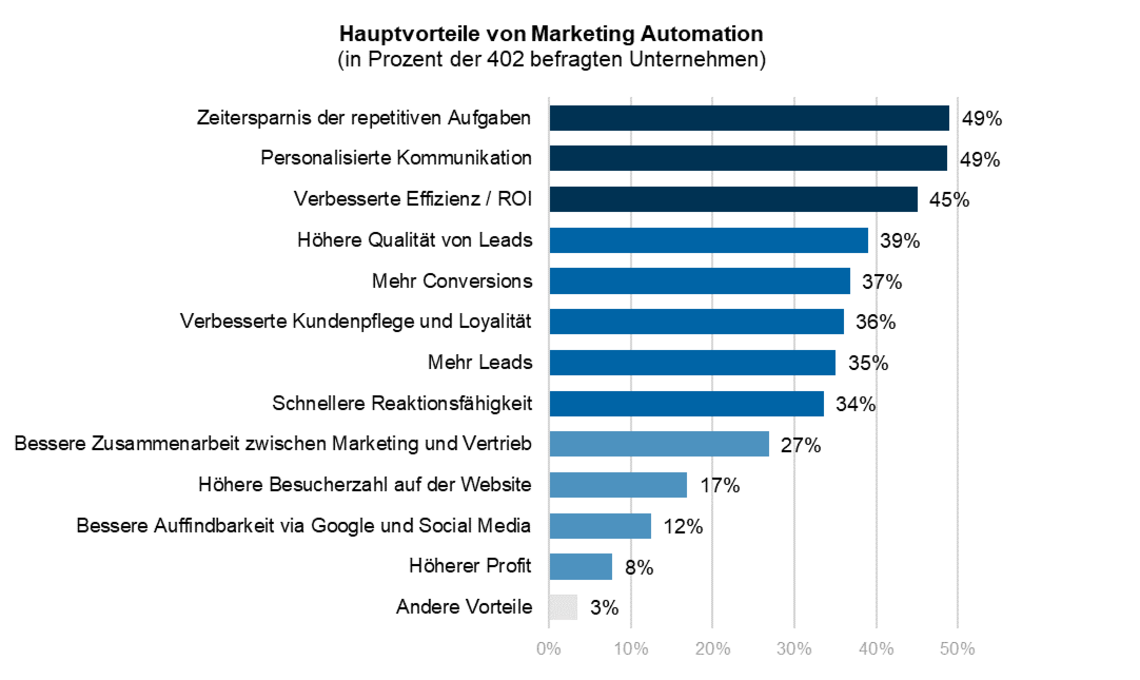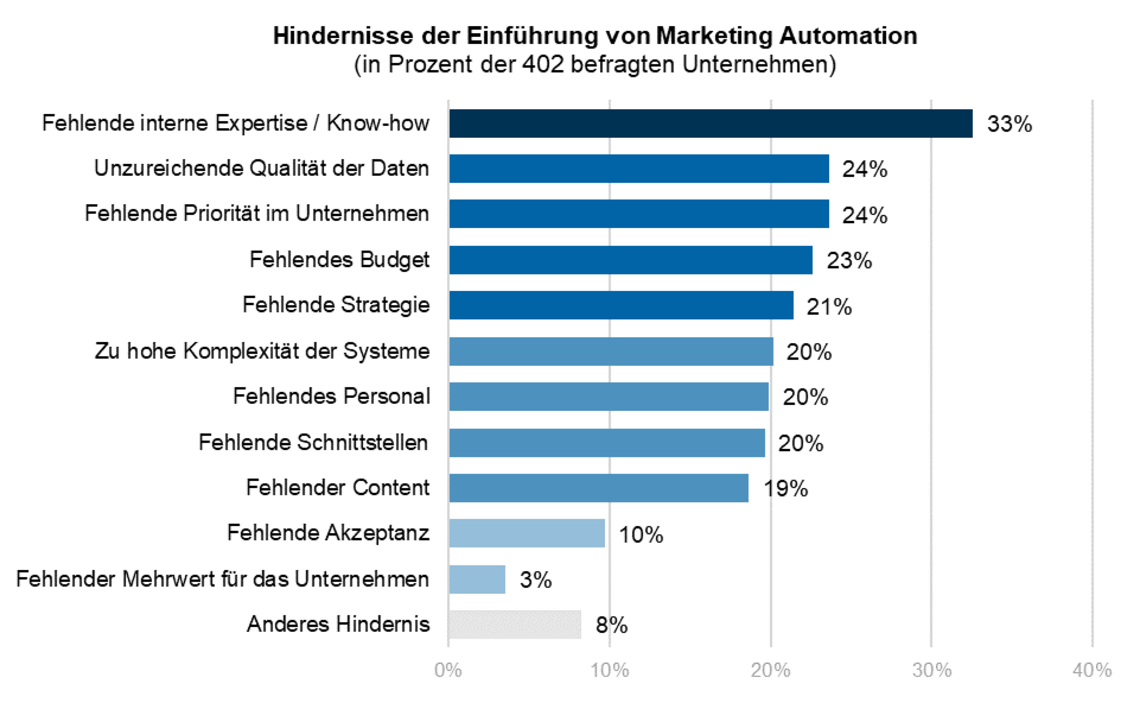Swiss companies increasingly rely on automation in marketing
Four out of ten companies in Switzerland use automated marketing tools. They see their advantages, among other things, in the higher efficiency and the personalized approach to customers. This is the result of a recent study by the ZHAW.

40 percent of Swiss companies use at least one technology in the area of "marketing automation," as the study reveals. Compared to surveys from previous years, this proportion has grown. Marketing automation is used particularly frequently by companies that are generally successful in achieving their online goals. The corresponding figure is 72 percent compared to just 18 percent of less successful companies.
Importance will continue to increase
Examples of marketing automation include personalized newsletters, whose content is automatically tailored to the interests of recipients, or "lead nurturing," in which potential customers receive automated information and product recommendations. "Instruments of this kind will play an increasingly important role in marketing and sales as digitization accelerates, especially when resources are scarce," says study director Darius Zumstein.
42 percent of the companies surveyed also expect marketing automation to become part of their overarching digital strategy in the future. For around half of the companies, the central advantage of corresponding technologies is the time saved on repetitive tasks, for example through the rule-based, automatic sending of e-mails. Just as many companies see it as a tool for more personalized communication with customers. For 45 percent, marketing automation also increases efficiency and return on investment.

Lack of expertise as a challenge
"In order to exploit the potential of these technologies, however, companies must first create the necessary conditions: Among other things, this includes maintaining high-quality customer and usage data and building up the necessary expertise," Zumstein explains. A lack of internal expertise is seen by 33 percent of the companies surveyed as an obstacle to the introduction of marketing automation. The insufficient quality of existing data is a problem for around one in four companies. Also for about a quarter of the companies each, the use of marketing automation is not a priority or the necessary budget is lacking. "Small companies in particular face these challenges. They also generally use fewer marketing technologies and have some catching up to do in terms of digitization," adds Zumstein.

The study "Marketing Automation Report 2021 - Lead Generation and Lead Qualification through Data-Driven Marketing in B2B". by the ZHAW School of Management and Law was conducted on behalf of B2B marketing automation provider Aioma. In a quantitative online survey, the researchers interviewed marketing and sales professionals as well as executive management members of 402 Swiss companies, the majority in the B2B sector. The survey took place from August 4 to October 2, 2020. Part of the study is also a checklist with recommendations for the introduction and operation of marketing automation.









